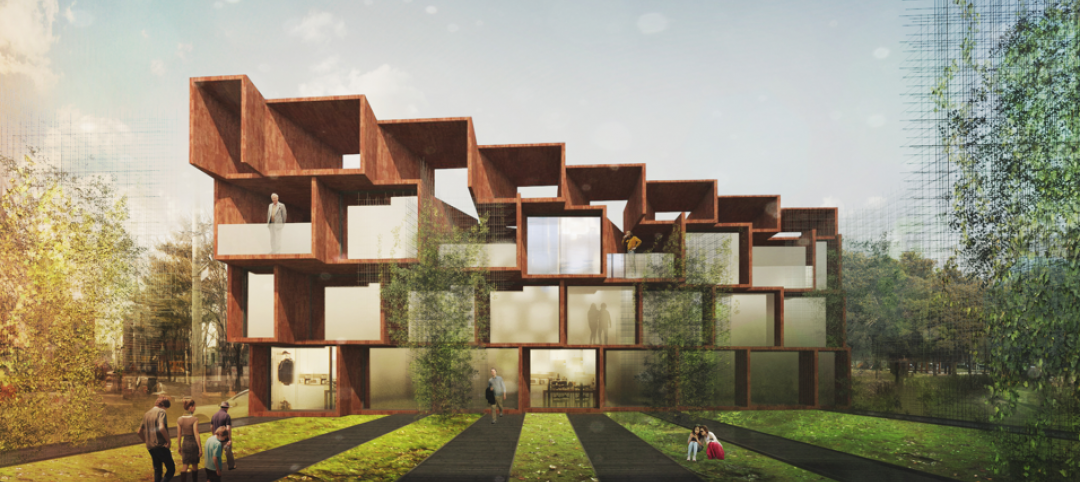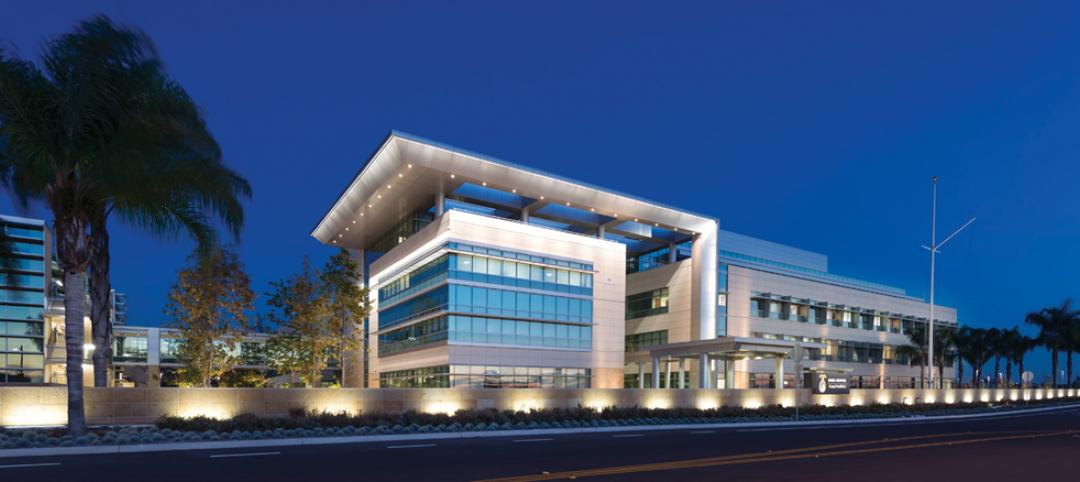In the latest chapter of the industry’s ongoing consolidation saga, two of the top 50 architecture/engineering firms, DLR Group and Westlake Reed Leskosky (WRL), are joining forces, bringing together companies with 1,000 employees in 26 locations worldwide.
This is the second addition to its stable in the last 14 months for Omaha, Neb.-based DLR. In July 2015, it acquired SORG Architects, which works primarily in the Washington D.C. area, and will now operate as DLR Group|Sorg|Westlake Reed Leskosky.
The 112-year-old WRL, founded by the youngest son of U.S. President James Garfield, will extend DLR’s presence into such eastern metros as Cleveland (WRL’s headquarters city), New York, and Charlotte. “Strategically, this increases the geographic reach of both firms,” said Griff Davenport, chief executive of DLR, which turns 50 this year.
Paul Westlake, FAIA, FACHA, WRL’s Managing Principal, added that there is little overlap of practice type specialization or clientele between the two firms, and that he sees “lots of opportunities” for DLR to fatten its nine practices on these new markets. Right before the deal was announced, Westlake informed a university president about the merger, “and he said that the university had three projects on the horizon that fit DLR’s specialties.”
Westlake considered DLR’s K-12 practice to be “the best in the country,” whereas Davenport singled out WRL’s Cultural and Performing Arts practice, a sector where the two firms had worked together on projects previously.
Other practices for the combined firm include Energy Services, Hospitality, Healthcare, Justice, Preservation, Retail, Mixed-Use, Sports, and Office.
As a Senior Principal of the combined company, Westlake will lead its Culture and Performing Arts Studio, and become a member of DLR Group’s board of directors. He told BD+C that he felt this change would return him to his roots as a designer, as well as take full advantage of his experience growing a company. (Westlake opened WRL’s second office, and several others subsequently.)
The merger also provides “ownership” opportunities to WRL’s employees, as DLR is 100% employee-owned, said Davenport.
He and Westlake said the two firms have recognized each other as industry “leaders” for a while. About a year ago, they started talking about working together in some capacity, which evolved into more substantive discussions about merging.
“As we went to through the process it became readily apparent that within our firms is a clear cultural alignment,” said Davenport. Westlake said that the eight or nine people with equity positions at WRL were “excited” about a merger. And a month before the deal consummated, the two companies brought together their respective team leaders in what Davenport called “a cultural exchange,” which turned out better than expected. “There was chemistry beyond just business.”
Several of WRL’s executives assume key management roles in the transition. Phil LaBassi, FAIA, FACHA, a Principal and owner at WRL, will become Global Healthcare Leader and direct that practice for the combined firm. Matt Janiak, AIA, will lead the operations in the Cleveland and New York offices. Paul Siemborski, AIA, will lead business developing and marketing for the Northeast Region. And Glenn Johnson will direct the DLR Group|Westlake Reed Leskosky office in Charlotte.
Tom Gallagher, AIA, who was made an owner at WRL in February, will continue to direct the DLR Group|Westlake Reed Leskosky New York office and lead a studio specializing in lighting and museum design. Gallagher will also lead projects in Asia.
Davenport said his company is keeping its eyes open for new growth avenues that might include acquisitions, which “will continue to be a strategy we consider. Every so often, a firm like WRL comes along.”
Related Stories
| Jul 10, 2014
Unique design of Toronto's townhome The Tree House
Plans for a new Toronto townhome brings cutting-edge design.
| Jul 10, 2014
Berkeley Lab opens 'world's most comprehensive building efficiency simulator'
DOE’s new FLEXLAB is a first-of-its-kind simulator that lets users test energy-efficient building systems individually or as an integrated system, under real-world conditions.
| Jul 10, 2014
Steinberg SF Studio launches in San Francisco, plans to transform its own office space
Grant and Saheba left their previous architectural firms, AECOM and Handel respectively, because they saw the opportunity to bring their agile, provocative design aesthetic to clients in San Francisco, Silicon Valley, and Oakland.
| Jul 9, 2014
Dragon-inspired hotel conveys Vietnamese hospitality [2014 Building Team Awards]
An international Building Team unites to create Vietnam’s first JW Marriott luxury property.
| Jul 9, 2014
Harvard Business School to build large-scale conference center
Expected to open in 2018, the facility will combine the elements of a large-scale conference center, a performance space, and an intimate community forum. The new building will be designed by Boston-based William Rawn and Associates.
| Jul 9, 2014
Top U.S. cities for design professionals
Though New York and Los Angeles are often seen as the sole hubs for design jobs, other design epicenters are scattered between the coasts.
| Jul 9, 2014
The one misstep that could be slowing your company’s growth
Change. It’s inevitable. And success for any professional may very well depend on how well we adapt to it. SPONSORED CONTENT
| Jul 9, 2014
First Look: SOM's design for All Aboard Florida Fort Lauderdale rail station
The lightweight and luminous design "responds to its setting and creates a striking infrastructural icon for the city," said SOM Design Partner Roger Duffy.
| Jul 8, 2014
Fast-track naval hospital sparks sea change in project delivery [2014 Building Team Awards]
Through advanced coordination methods and an experimental contract method, the Building Team for Camp Pendleton’s new hospital campus sets a new standard for project delivery.
| Jul 8, 2014
Does Zaha Hadid’s Tokyo Olympic Stadium have a design flaw?
After being criticized for the cost and size of her stadium design for the 2020 Olympics in Tokyo, a Japanese architect points out a major design flaw in the stadium that may endanger the spectators.

















